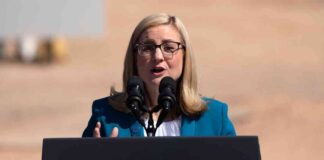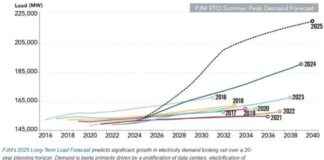Countries Engage in Heated Debate Over Green Climate Fund Shortfall
At the recent board meeting of the Green Climate Fund (GCF) in Songdo, South Korea, tensions ran high as members clashed over how to address the significant funding gap created by the United States’ withdrawal of $4 billion in pledges. The absence of the US delegation at the meeting cast a shadow over the discussions, with board members from various nations engaging in a heated debate about who should step in to fill the financial void.
Germany and Sweden, representing the GCF’s existing contributor base, urged other governments, particularly high-income developing nations, to increase their financial support. However, oil-rich Saudi Arabia pushed back strongly against this suggestion, labeling it as “unacceptable.” The contentious issue of funding threatened to derail the GCF’s ambitious plans to ramp up support for programs aimed at helping developing countries transition to clean energy and adapt to climate change.
US Withdrawal Impacts GCF’s Ambitious Goals
The US’ decision to rescind its contributions to the GCF, promised by previous administrations, has put the fund’s future in jeopardy. Despite a successful fundraising round that garnered $13.6 billion for the 2024 to 2027 period, the loss of US funding means that the GCF may only be able to deploy just over $10 billion during this timeframe. This falls short of the fund’s desired targets and could hinder its ability to support critical climate initiatives in developing countries.
In the lead-up to the board meeting, GCF Executive Director Mafalda Duarte issued a plea to world leaders to continue providing essential climate finance to developing nations through the fund. While some wealthy developing countries have voluntarily contributed to the GCF, the majority of funding still comes from developed nations like Germany, Japan, the UK, and France.
Calls for Additional Contributions and Disagreements
Board members, echoing Duarte’s sentiments, called for additional contributions to make up for the US funding shortfall. Germany proposed tapping into high-income non-traditional donors, non-sovereign contributors, and the private sector to bolster the fund’s resources. Meanwhile, Sweden encouraged existing donors to increase their financial support, while also urging new contributors to step forward based on their capacity.
However, Saudi Arabia vehemently opposed the idea of developing countries being pressured to fill the gap left by the US. The Saudi representative criticized attempts to shift the financial burden onto nations that have historically contributed less to the fund, highlighting the need for equitable participation from all stakeholders.
Challenges Ahead for the Green Climate Fund
With the US, Italy, and Hungary yet to confirm their pledges, and partial confirmations from France and Canada, the GCF faces uncertainties regarding its future funding. The fund aims to approve up to $3 billion in new projects in 2025 and expand its portfolio to $50 billion by 2030. However, the lack of full pledges could hinder its ability to support developing countries in achieving their climate goals.
Despite these challenges, the GCF board remains committed to its mission of accelerating support for climate-vulnerable communities. The approval of $686.8 million for 11 projects across 42 countries, including new ventures in Togo and Serbia, demonstrates the fund’s dedication to advancing climate action on a global scale.
Looking Ahead: Establishing a Regional Presence
In a significant development, the GCF board announced plans to establish a regional presence to enhance the fund’s impact and bring its operations closer to the countries it serves. By deploying world-class specialists in key regions, the GCF aims to strengthen its support for local climate initiatives and ensure that funding reaches those who need it most.
As the GCF navigates the challenges posed by the US withdrawal and seeks to secure additional contributions from new donors, the fund’s commitment to supporting climate action remains unwavering. By fostering collaboration and innovation, the GCF continues to play a vital role in the global effort to combat climate change and protect vulnerable communities.














